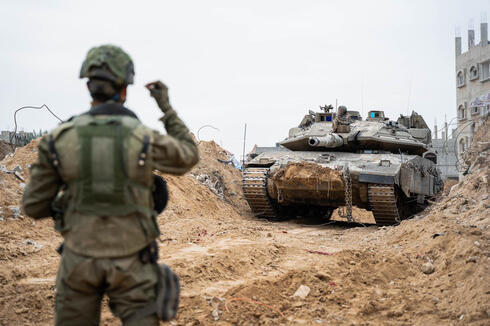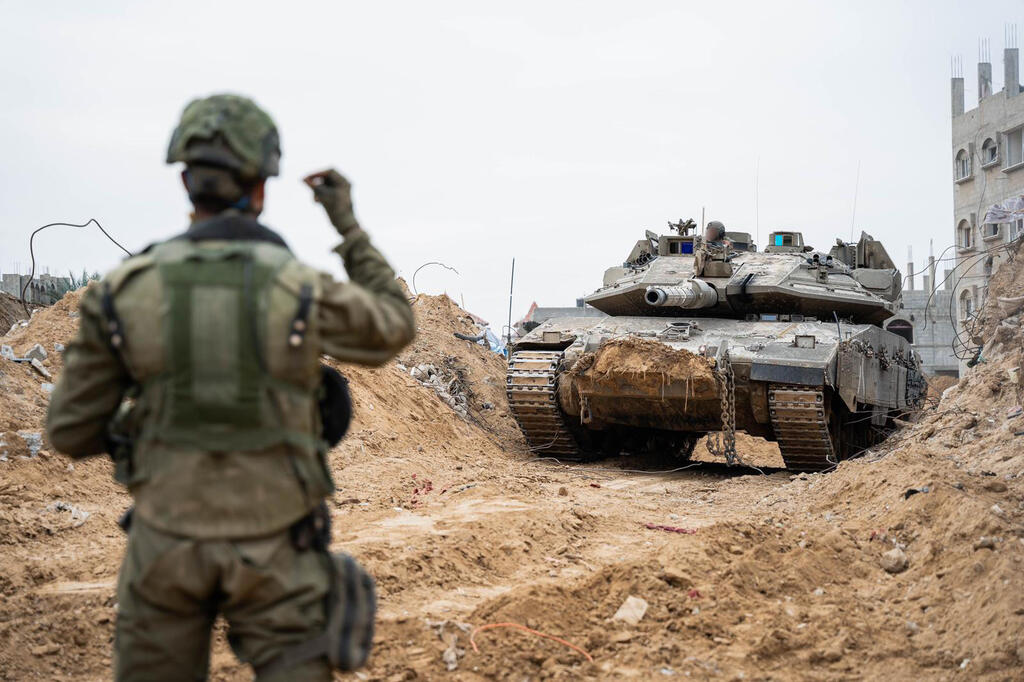
War with Hamas to cost Israel at least another $14 billion in 2024 and result in a near-tripling of budget deficit
Briefing lawmakers, the Finance Ministry said the war was expected to stretch at least two months into 2024, adding 30 billion shekels for security and another 20 billion for civilian and other expenses
Israel's war with Hamas in Gaza will likely cost it at least another 50 billion shekels ($14 billion) in 2024 and result in a near-tripling of its budget deficit, the Finance Ministry said on Monday, projecting that fighting will last through February.
Briefing lawmakers, the ministry's deputy budget commissioner Itai Temkin said the war was expected to stretch at least two months into 2024, adding 30 billion shekels for security and another 20 billion for civilian and other expenses.
That, he told the Knesset Finance Committee, would drive up total defense spending by more than 48 billion shekels ($13.2 billion) beyond what had initially been allocated.
Total budgetary spending in 2024 would rise to 562.1 billion shekels ($155.5 billion) from a planned 513.7 billion ($142 billion) and lead to a budget deficit of 5.9% of gross domestic product, up from a target of 2.25%.
With the deficit expected to widen by 75 billion shekels ($20.7 billion) to 114 billion shekels ($31.5 billion) next year, Temkin said the gap would require cutting other expenses or raising revenue.
He also said it was not currently possible to plan for the possibility that the war against Gaza's Palestinian Hamas terrorists would stretch into March or beyond.
"It is possible that later in the year we will have to come and update it and we will have to come with updates as the war drags on," he said.
Related articles:
- Over 15 cyber attack groups affiliated with Iran, Hezbollah or Hamas are operating against Israel, says National Cyber Directorate
- GPS disruption due to war wrecks havoc on automated farming systems
- Human Rights Watch report accusing Meta of censoring pro-Palestinian posts is riddled with serious failures
Parliament this month approved a special war budget for 2023 of nearly 30 billion shekels to help fund the war and compensate those impacted by the Oct. 7 murderous attacks by Hamas that led to the war and by rockets launched from Gaza and Lebanon.
Moshe Gafni, chairman of the finance committee, said he was opposed to raising income taxes but supported taxes on excess bank profits and measures to promote economic growth.
Finance Minister Bezalel Smotrich later told reporters that he will work to avoid increasing the financial burden on citizens during the war and his main priority for 2024 is to assist reservists and their families.
"They left everything and risked their lives for all of us and we should do everything to reward them in the best possible way," Smotrich said, adding the finance and defense ministries were working on a "very large plan for the benefit of the reservists and their families."
Around 350,000 people have been called into reserves since the start of the war.
The ministry estimated a fourth-quarter economic contraction of an annualized 19% from the third quarter, which had seen growth of 2.5%. For all of 2023, it projects growth of 2%, or flat per capita growth, and 1.6% growth in 2024. It expects the annual inflation rate to end the year at 3.1% and ease to 2.6% next year.














